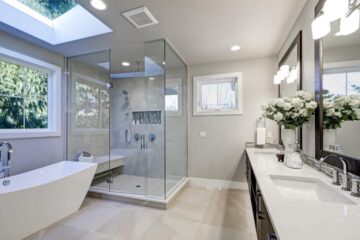As the world increasingly turns towards renewable energy sources, solar panels have become a popular choice for homeowners looking to reduce their carbon footprint and save on energy costs.
However, installing solar panels is a significant investment and requires careful planning to ensure maximum efficiency and longevity. Here are the top 10 mistakes to avoid when installing solar panels in your home:
Skipping a Professional Assessment:
One of the biggest mistakes homeowners make is skipping a professional assessment before installing solar panels.
A professional assessment by solar panel specialists will evaluate your home’s energy needs, roof orientation, shading issues, and structural integrity to determine the best solar panel system for your property.
By bypassing this crucial step, you risk investing in a system that doesn’t meet your needs or is incompatible with your home.
Ignoring Local Regulations and Permits:
Installing solar panels requires adherence to local regulations and obtaining the necessary permits. Ignoring these requirements can lead to fines, delays, or even forced removal of your solar panels.
Before starting the installation process, research local regulations and obtain the required permits to ensure a smooth and legal installation.
Choosing the Wrong Size System:
Selecting the right size solar panel system is crucial for maximizing energy production and optimizing your return on investment.
Installing an undersized system may not generate enough electricity to meet your needs, while an oversized system can be unnecessarily expensive.
Work with a reputable installer to determine the appropriate size based on your energy consumption, roof space, and budget.
Neglecting Roof Condition:
Your roof serves as the foundation for your solar panel installation, so it’s essential to ensure it’s in good condition before proceeding.
Neglecting roof repairs or replacement can lead to leaks, damage to your solar panels, and additional expenses down the line. Inspect your roof for any signs of damage and address any issues before installing solar panels.
Poor Placement and Orientation:
The placement and orientation of your solar panels significantly impact their efficiency and energy production. Panels should ideally face south in the northern hemisphere (or north in the southern hemisphere) to receive maximum sunlight throughout the day.
Additionally, shading from nearby trees, buildings, or other obstructions should be minimized to optimize sunlight exposure.
Neglecting Maintenance:
While solar panels require minimal maintenance, neglecting basic upkeep can affect their performance and longevity. Regularly clean your panels to remove dirt, debris, and any obstructions that may block sunlight.
Additionally, monitor your system for any signs of damage or malfunctions and promptly address any issues to ensure optimal performance.
Not Considering Future Energy Needs:
When installing solar panels, it’s essential to consider your future energy needs to avoid outgrowing your system prematurely. Factors such as changes in household size, energy-efficient upgrades, and the addition of electric vehicles should be taken into account when determining the size and capacity of your solar panel system.
Choosing Low-Quality Equipment:
Opting for low-quality solar panels or inverters to save money can be a costly mistake in the long run. High-quality equipment may come with a higher initial cost but offers better performance, reliability, and warranty coverage.
Investing in reputable brands and components ensures greater efficiency and durability, ultimately maximizing your return on investment.
Overlooking Financial Incentives and Rebates:
Many governments and utility companies offer financial incentives, rebates, and tax credits to encourage the adoption of solar energy.
verlooking these incentives can result in missed opportunities to save money on your solar panel installation. Research available incentives in your area and take advantage of any programs that can help offset the cost of going solar.
Failing to Evaluate Installer Credentials:
Choosing the right solar installer is just as important as selecting the right equipment. Failing to evaluate installer credentials, experience, and customer reviews can lead to subpar installation quality and potential issues down the line.
Research prospective installers, ask for references, and ensure they are properly licensed, insured, and certified to install solar panels in your area.
Conclusion
In conclusion, installing solar panels in your home is a significant investment that requires careful consideration and planning to avoid costly mistakes.
By avoiding the top 10 mistakes outlined above and working with reputable professionals, you can ensure a successful solar panel installation that maximizes energy production, efficiency, and long-term savings.



